-
The University
- Welcome
- Who we are
- Media & PR
- Studying
-
Research
- Profile
- Infrastructure
- Cooperations
- Services
-
Career
- Med Uni Graz as an Employer
- Educational Opportunities
- Work Environment
- Job openings
-
Diagnostics
- Patients
- Referring physicians
-
Health Topics
- Health Infrastructure
Research units: Lung Research Cluster

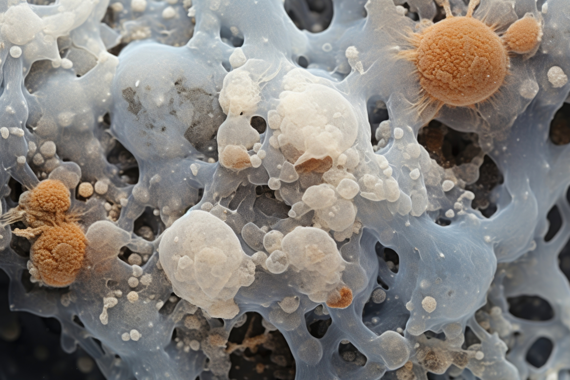
Metabolic and hormonal influence on fate of mesenchymal cells in Chrnic Lung Disease
Chronic lung diseases (CLD) are leading cause of mortality and their prevalence is expected to substantially increase in the coming decades. CLD are characterized by a remodeling of the lung tissue which ultimately leads to cardio-respiratory problems. Many different mesenchymal cells contribute to this remodeling and each of them contribute differently to disease development. We aim to investigate how systemic/local metabolic and hormonal changes influence mesenchymal cells behavior and function.
Head of the research unit: Valentina Biasin
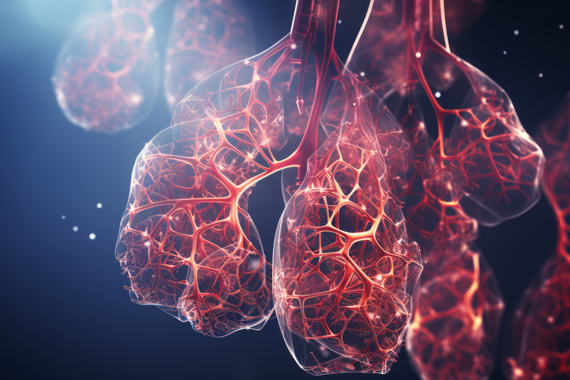
Cell signaling pathways in inflammatory lung diseases
Our research activities focus on inflammatory processes that contribute to the development of chronic lung diseases such as bronchial asthma and COPD. In the course of the diseases, inflammatory mediators are released, which recruit and activate immune cells. However, the involved signaling pathways are not yet fully understood. In order to define new approaches for diagnosis and therapy we investigate these activation processes by linking findings from isolated cell systems, disease models and patient samples.
Head of the research unit: Eva Böhm
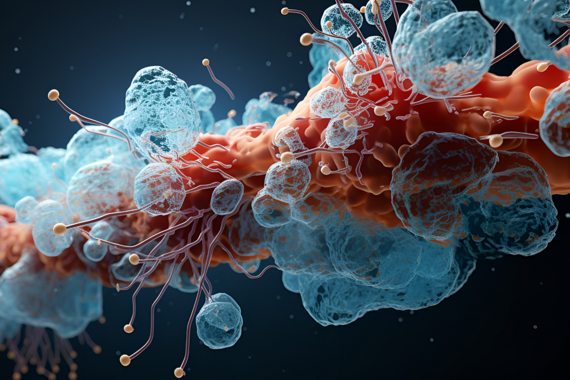
Heterogeneity and plasticity of pulmonary smooth muscle cells
This research unit is working to understand the cellular mechanisms of pulmonary vascular remodeling, in particular, the heterogeneity of smooth muscle cells. Using novel technologies such as single cell transcriptomics and three-dimensional imaging, its goal is to answer the role of smooth muscle cell plasticity in pulmonary diseases. It is also identifying crucial regulators of SMC fate as potential novel anti-remodeling therapies.
Head of the research unit: Slaven Crnkovic
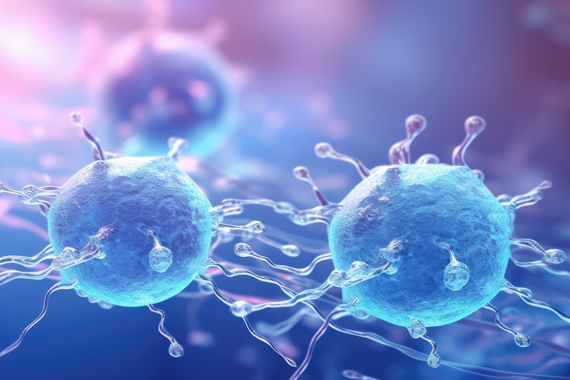
Mechanisms of chemoresistance in lung carcinoma
Lung cancer is one of the most frequent cancer types worldwide. The focus of the research unit is the investigation of different aspects of chemoresistance in lung carcinoma cells. Molecular mechanism of chemoresistance by using modern methods of molecular and cellular biology are investigated. Another focus of interest in this research unit are microRNA molecules. MicroRNAs regulate gene expression and thereby influence signaling pathways and mechanisms of resistance in tumor cells. The goal is to improve the treatment modality for lung carcinoma patients.
Head of the research unit: Andelko Hrzenjak
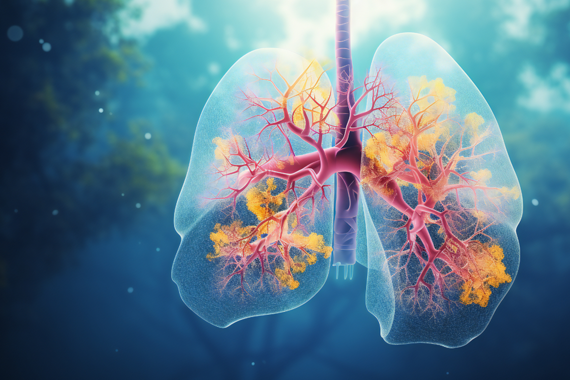
Extracellular matrix and cellular crosstalk in vascular chronic lung diseases
Chronic lung diseases (CLD) such as pulmonary fibrosis are often associated with vascular changes. The constant interaction between structural cells and extracellular matrix (ECM) proteins is integrative part of vessel and parenchymal cellular homeostasis, however, when disturbed can lead to cellular expansion and disease worsening. This RU aims to delineate the mechanism leading to disbalance in cellular homeostasis and thus CLD development.
Head of the research unit: Grazyna Kwapiszewska-Marsh
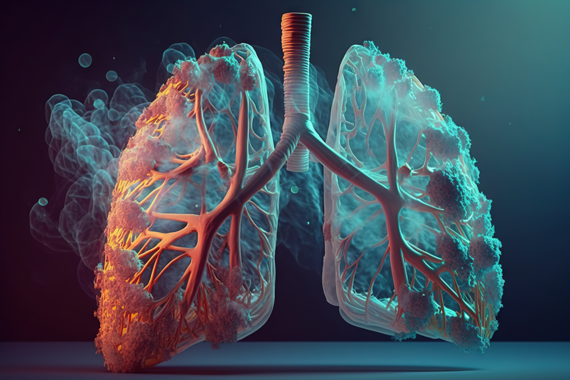
Epidemiology and pulmonary hemodynamics in chronic lung diseases
Our research unit focuses on clinical and translational research in the field of pulmonary hypertension (PH). Our main goals include the early diagnosis of PH with innovative tools, and the optimized management of patients with early PH and with PH associated with chronic lung diseases. Pulmonary exercise hemodynamics represents a special focus among our research projects. We initiated and developed several international collaborations including the PEX-NET Clinical Research Collaboration supported by the European Respiratory Society and international COPD and ILD collaborations.
Head of the research unit: Gabor Kovacs
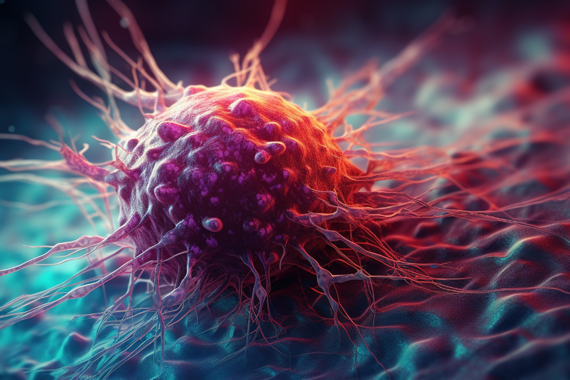
Lung Cancer Metabolism and Microenvironment
In solid cancers like lung cancer, cells face a poor nutrient supply due to an insufficient newly formed vasculature. The research unit “Lung Cancer Metabolism and Microenvironment”, led by Katharina Leithner, aims to study the metabolic rewiring of cancer cells and tumor immune cells under these harsh conditions. The researchers identified a novel metabolic pathway in lung cancer cells, that allows cancer cells to perform metabolism independent of glucose and aim to further shed light on this pathway.
Head of the research unit: Katharina Leithner
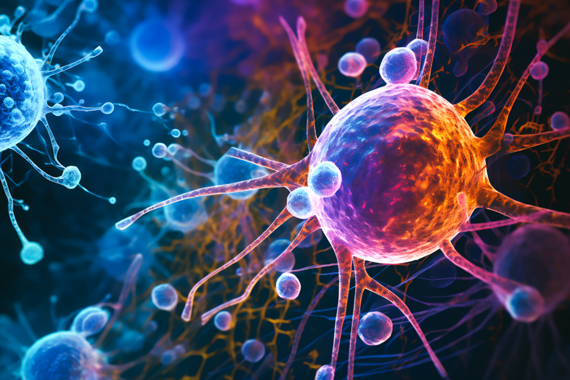
Immune cell interaction in chronic lung disease
The immune system plays and important role in the development and progression of chronic lung diseases, leading to both parenchymal and vascular remodelling. Our research unit focuses on understanding the deeper dynamics of these immune cells by going beyond individual populations and focusing on comprehensive inflammatory profiles. By applying an interdisciplinary translational approach we aim to unravel the interaction and interdependence of these immune cells and determine their contribution to disease pathogenesis.
Head of the research unit: Leigh Marsh
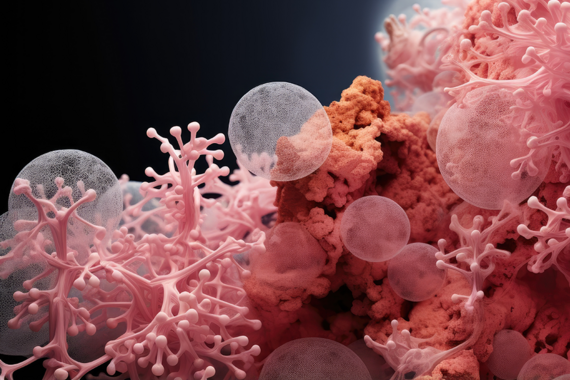
Translational membrane protein research in the lung and insights into disease
The membrane protein family of channels fulfils salient roles as versatile cellular sensors and effectors. Their pivotal role in the lung is highlighted by the discovery of several mutations leading to pulmonary diseases such as cystic fibrosis or pulmonary arterial hypertension. The Research Unit strives to elucidate the underlying mechanisms of pulmonary pathophysiologies and investigate their economic consequences for public health in an aging society.
Head of the research unit: Andrea Olschewski


